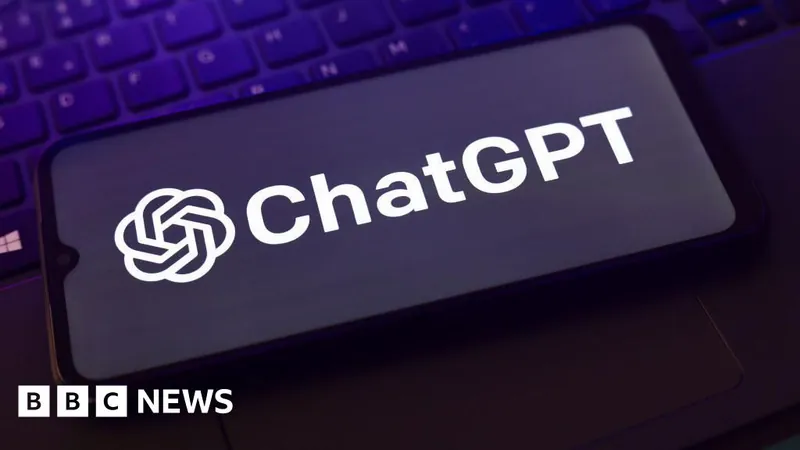
Major Canadian News Outlets Take Bold Stand Against OpenAI in Groundbreaking Lawsuit
2024-11-30
Author: Sophie
Introduction
In a historic legal move, a coalition of Canada's leading news organizations is suing OpenAI, the creator of the widely popular chatbot ChatGPT. The lawsuit accuses the tech giant of unlawfully using news articles to train its artificial intelligence software.
The Coalition of Canadian Media
Major players in the Canadian media landscape, including the Toronto Star, Metroland Media, Postmedia, The Globe and Mail, The Canadian Press, and CBC, have united to bring forth what is reported to be the first lawsuit of its kind in Canada. They contend that the use of their journalism for OpenAI's commercial benefit is not just unethical but illegal.
Statement from the Media Coalition
“Journalism serves a vital public interest. The appropriation of journalism from different companies for OpenAI's profit is inappropriate,” they stated in a collective declaration.
OpenAI's Response
In response, OpenAI maintains that their models rely on “publicly available data” and asserts their operations are compliant with fair use and global copyright norms. The company emphasized its commitment to collaborate with news publishers, claiming they provide proper attribution and allow publishers the option to opt-out of having their articles used in ChatGPT searches.
Allegations in the Lawsuit
However, the 84-page lawsuit outlines serious allegations against OpenAI, asserting that the company routinely bypasses safeguards designed to protect content, such as paywalls and copyright disclaimers. The media coalition claims that OpenAI has been scraping vast quantities of content from Canadian news sources to develop its products, which they argue constitutes a violation of copyright laws and online terms of service.
Plaintiffs' Demands
The plaintiffs are seeking significant punitive damages, claiming C$20,000 (approximately $14,300 or £11,000) for each article they allege was unlawfully utilized to train ChatGPT. If successful, this could lead to billions of dollars in compensation. Additionally, they are demanding that OpenAI shares the profits generated through the use of their articles and is barred from further use of this material in the future.
Similar Cases in the US
This lawsuit is not an isolated incident. It mirrors a previous legal action taken by several publishers in the United States, including The New York Times, which accused OpenAI of dismissing legal evidence crucial for their case. The Authors Guild and prominent writers like John Grisham have also raised similar copyright infringement claims against the AI firm.
Implications of the Lawsuit
As the controversy unfolds, the Wall Street Journal recently reported that OpenAI has reached a staggering valuation of C$219 billion following its latest fundraising efforts from high-profile investors. This lawsuit could have far-reaching implications not just for OpenAI, but for the relationship between tech companies and traditional media, as the world grapples with the evolving landscape of artificial intelligence and copyright.
Conclusion
Stay tuned for updates on this monumental case as it develops!



 Brasil (PT)
Brasil (PT)
 Canada (EN)
Canada (EN)
 Chile (ES)
Chile (ES)
 Česko (CS)
Česko (CS)
 대한민국 (KO)
대한민국 (KO)
 España (ES)
España (ES)
 France (FR)
France (FR)
 Hong Kong (EN)
Hong Kong (EN)
 Italia (IT)
Italia (IT)
 日本 (JA)
日本 (JA)
 Magyarország (HU)
Magyarország (HU)
 Norge (NO)
Norge (NO)
 Polska (PL)
Polska (PL)
 Schweiz (DE)
Schweiz (DE)
 Singapore (EN)
Singapore (EN)
 Sverige (SV)
Sverige (SV)
 Suomi (FI)
Suomi (FI)
 Türkiye (TR)
Türkiye (TR)
 الإمارات العربية المتحدة (AR)
الإمارات العربية المتحدة (AR)